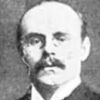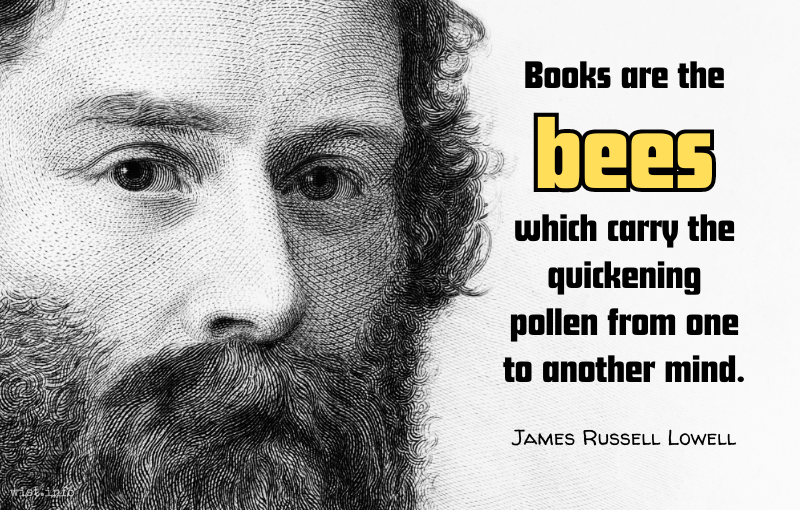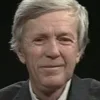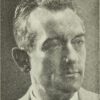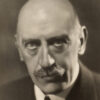Making a book is a craft, like making a clock; it needs more than native wit to become an author.
[C’est un métier que de faire un livre, comme de faire une pendule: il faut plus que de l’esprit pour être auteur.]
Jean de La Bruyère (1645-1696) French essayist, moralist
The Characters [Les Caractères], ch. 1 “Of Works of the Mind [Des Ouvrages de l’Esprit],” § 3 (1.3) (1688) [tr. Stewart (1970)]
(Source)
(Source (French)). Alternate translations:
To make a Book, is like making a Pendulum, a Man must have Experience, as well as Wit to succeed in it.
[Bullord ed. (1696)]
Tis as much a Trade to make a Book, as to make a Watch; there's something more than Wit requisite to make an Author.
[Curll ed. (1713)]
To make a Book, is no less a Trade than to make a Clock; something more than Wit is necessary to form an Author.
[Browne ed. (1752)]
To make a book is as much a trade as to make a clock; something more than intelligence is required to become an author.
[tr. Van Laun (1885)]
Quotations about:
writing
Note not all quotations have been tagged, so Search may find additional quotes on this topic.
Nothing so difficult as a beginning
In poesy, unless perhaps the end.
The surprising surprises once; but the admirable is admired more and more.
[Ce qui étonne, étonne une fois; mais ce qui est admirable est de plus en plus admiré.]
Joseph Joubert (1754-1824) French moralist, philosopher, essayist, poet
Pensées [Thoughts], ch. 23 “Des Qualités de l’Écrivain [Of the Qualities of Writers]” ¶ 164 (1850 ed.) [tr. Lyttelton (1899), ch. 22, ¶ 77]
(Source)
(Source (French)). Alternate translations:
What astonishes astonishes once, but what is admirable is more and more admired.
[tr. Calvert (1866), ch. 15]
That which astonishes, astonishes once; but whatever is admirable becomes more and more admired.
[tr. Attwell (1896), ¶ 370]
The surprising astonishes once; but the admirable is admired more and more.
[tr. Collins (1928), ch. 22]
If the young aspirant is not rich enough for Parliament, and is deterred by the basilisks or otherwise from entering on Law or Church, and cannot altogether reduce his human intellect to the beaverish condition, or satisfy himself with the prospect of making money, — what becomes of him in such case, which is naturally the case of very many, and ever of more? In such case there remains but one outlet for him, and notably enough that too is a talking one: the outlet of Literature, of trying to write Books.
Thomas Carlyle (1795-1881) Scottish essayist and historian
Latter-Day Pamphlets, # 5 “Stump-Orator” (1850-05-01)
(Source)
Within that heav’n which most receives His light
Was I, and saw such things as man nor knows
Nor skills to tell, returning from that height;
For when our intellect is drawing close
To its desire, its paths are so profound
That memory cannot follow where it goes.
Yet now, of that blest realm, whate’er is found
Here in my mind still treasured and possessed
Must set the strain for all my song to sound.
[Nel ciel che più de la sua luce prende
fu’ io, e vidi cose che ridire
né sa né può chi di là sù discende;
perché appressando sé al suo disire,
nostro intelletto si profonda tanto,
che dietro la memoria non può ire.
Veramente quant’io del regno santo
ne la mia mente potei far tesoro,
sarà ora materia del mio canto.]Dante Alighieri (1265-1321) Italian poet
The Divine Comedy [Divina Commedia], Book 3 “Paradiso,” Canto 1, l. 4ff (1.4-12) (1320) [tr. Sayers/Reynolds (1962)]
(Source)
Dante breaks the fourth wall again, to apologize for how little he can remember of the ineffable glories of Heaven (which works out to an entire book's worth).
(Source (Italian)). Alternate translations:
In daring drains
I sing, admitted to the lofty fanes,
Fill'd with the Glory of th' Eternal One.
There saw I things beyond Creation's bourne.
Which none who from her flaming bounds return
Can tell, when soaring Thought is launch'd so far
In Being's vast Abyss, that Mem'ry fails.
Nor dares pursue, altho' with crowded sails
She tries the Voyage o'er th' eternal Bar.
But some small remnant of that heav'nly Spoil,
From that strange Voyage won with arduous toil,
To her dear native soil, the Muse shall bear.
[tr. Boyd (1802), st. 1-3]
In heav’n,
That largeliest of his light partakes, was I,
Witness of things, which to relate again
Surpasseth power of him who comes from thence;
For that, so near approaching its desire
Our intellect is to such depth absorb’d,
That memory cannot follow. Nathless all,
That in my thoughts I of that sacred realm
Could store, shall now be matter of my song.
[tr. Cary (1814)]
In heaven, that drinks the deepest of the light,
Was I, and saw what to recount to sense
He knows not how, nor can, who comes from thence;
Because, approaching nearer its desire,
Dives intellect to such a depth profound
That memory fails, and cannot go beyond
In truth of that dominion's power, whate'er
I can find room to treasure in my mind,
Be now the subject in my song enshrined.
[tr. Bannerman (1850)]
Within that heaven which most his light receives
Was I, and things beheld which to repeat
Nor knows, nor can, who from above descends;
Because in drawing near to its desire
Our intellect ingulphs itself so far,
That after it the memory cannot go.
Truly whatever of the holy realm
I had the power to treasure in my mind
Shall now become the subject of my song.
[tr. Longfellow (1867)]
In the heaven which receives most of His light was I, and I beheld things which whoso descends thence has neither knowledge nor power to tell again, seeing that as it draws near to its desire our understanding plunges so deep, that the memory cannot go after it. Howbeit, so much of the holy realm as I could treasure up within my mind shall now be matter for my lay.
[tr. Butler (1885)]
In the sky which most partaketh of his light
Was I, and things I saw, which to repeat
Knows not, and cannot whoe'er leaves that height.
Because approaching to its yearned-for seat
The intellect deep diveth there so long
That memory behind it cannot fleet.
Of what to the holy kingdom doth belong
Which I had power to treasure in my mind,
Truly shall now be subject of my song.
[tr. Minchin (1885)]
In the heaven that receives most of its light I have been, and have seen things which he who descends from thereabove neither knows how nor is able to recount; because, drawing near to its own desire, our understanding enters so deep, that the memory cannot follow. Truly whatever of the Holy Realm I could treasure up in my mind shall now be the theme of my song.
[tr. Norton (1892)]
In that heaven which most receiveth of his light, have I been ; and have seen things which whoso descendeth from up there hath nor knowledge nor power to re-tell;
because, as it draweth nigh to its desire, our intellect sinketh so deep, that memory cannot go back upon the track.
Nathless, whatever of the holy realm I had the power to treasure in my memory, shall now be matter of my song.
[tr. Wicksteed (1899)]
I was in the heaven that most receives His light and I saw things which he that descends from it has not the knowledge or the power to tell again; for our intellect, drawing near to its desire, sinks so deep that memory cannot follow it. Nevertheless, so much of the holy kingdom as I was able to treasure in my mind shall now be matter of my song.
[tr. Sinclair (1939)]
In that heaven which partakes most of His light
I have been, and have beheld such things as who
Comes down thence has no wit nor power to write;
Such depth our understanding deepens to
When it draws near unto its longing's home
That memory cannot backward with it go.
Nevertheless what of the blest kingdom
Could in my memory, for its treasure, stray
Shall now the matter of my song become.
[tr. Binyon (1943)]
I have been in that Heaven of His most light,
and what I saw, those who descend from there
lack both the knowledge and the power to write.
For as our intellect draws near its goal
it opens to such depths of understanding
as memory cannot plumb within the soul.
Nevertheless, whatever portion time
still leaves me of the treasure of that kingdom
shall now become the subject of my rhyme.
[tr. Ciardi (1970)]
I have been in the heaven that most receives of his light, and have seen things which whoso descends from up there has niehter the knowledge nor the power to relate, because, as draws near to its desire, our intellect enters so deep that memory cannot go back upon the track. Nevertheless, so much of the holy kingdom as I could treasure up in my mind shall now be the matter of my song.
[tr. Singleton (1975)]
I have been in the heaven which takes most of his light,
And I have seen things which cannot be told,
Possibly, by anyone who comes down from up there;
Because, approaching the object of its desires,
Our intellect is so deeply absorbed
That memory cannot follow it all the way.
Nevertheless, what I was able to store up
Of that holy kingdom, in my mind,
Will now be the matter of my poem.
[tr. Sisson (1981)]
I was within the heaven that receives more
of His light; and I saw things that he
who from that height descends, forgets or can
not speak; for nearing its desired end,
our intellect sinks into an abyss
so deep that memory fails to follow it.
Nevertheless, as much as I, within
my mind, could treasure of the holy kingdom
shall now become the matter of my song.
[tr. Mandelbaum (1984)]
I have been in His brightest shining heaven
and seen such things that no man, once returned
from there, has wit or skill to tell about;
for when our intellect draws near its goal
and fathoms to the depths of its desire,
the memory is powerless to follow;
but still, as much of Heaven’s holy realm
as I could store and treasure in my mind
shall now become the subject of my song.
[tr. Musa (1984)]
In the heaven that receives most of his light have I been, and I have seen things that one who comes down from there cannot remember and cannot utter,
for as it draws near to its desire, our intellect goes so deep that the memory cannot follow it.
Nevertheless, as much of the holy kingdom as I was able to treasure up in my mind will now become the matter of my song.
[tr. Durling (2011)]
I have been in that Heaven that knows his light most, and have seen things, which whoever descends from there has neither power, nor knowledge, to relate: because as our intellect draws near to its desire, it reaches such depths that memory cannot go back along the track.
Nevertheless, whatever, of the sacred regions, I had power to treasure in my mind, will now be the subject of my labour.
[tr. Kline (2002)]
High in that sphere which takes from Him most light
I was -- I was! -- and saw things there that no one
who descends knows how or ever can repeat.
For, drawing near to what it most desires,
our intellect so sinks into the deep
no memory can follow it that far.
As much, though, truly of that holy realm
as I could keep as treasure in my mind
will now become the substance of my song.
[tr. Kirkpatrick (2007)]
I was in that heaven which receives
more of His light. He who comes down from there
can neither know nor tell what he has seen,
for, drawing near to its desire,
so deeply is our intellect immersed
that memory cannot follow after it.
Nevertheless, as much of the holy kingdom
as I could store as treasure in my mind
shall now become the subject of my song.
[tr. Hollander/Hollander (2007)]
And though I saw where most of His brightness falls,
What I have seen cannot be represented
Here, for those who have entered Heaven, and descended,
Have come so close to what our minds desire
They sink far in, and bury their knowledge, their power,
So deep that memory cannot recover
A thing. But I will try, truly, to present
Whatever remains in my mind of that holy kingdom
And make it the substance of this song I will sing.
[tr. Raffel (2010)]
I was in the heaven that gets more of its rays
And saw things that those who come down
From on high can’t grasp or else can’t say,
Because nearing what one wants,
Our intellect is so overcome
That our memory is left behind.
Even so, as much of the Holy Kingdom
As my mind could hold on to
Will now be the subject of my song.
[tr. Bang (2021)]
I sing of brooks, of blossoms, birds, and bowers:
Of April, May, of June, and July flowers.
I sing of Maypoles, Hock-carts, wassails, wakes,
Of bridegrooms, brides, and of their bridal cakes.
I write of youth, of love, and have access
By these to sing of cleanly wantonness;
I sing of dews, of rains, and piece by piece
Of balm, of oil, of spice and ambergris;
I sing of times trans-shifting, and I write
How roses first came red and lilies white;
I write of groves, of twilights, and I sing
The Court of Mab, and of the Fairy King;
I write of hell; I sing (and ever shall)
Of heaven, and hope to have it after all.
VERS LIBRE. A device for making poetry easier to write and harder to read.
H. L. Mencken (1880-1956) American writer and journalist [Henry Lewis Mencken]
The Book of Burlesques, “The Jazz Webster” (1920)
(Source)
Known today as "Free Verse," and how most modern poetry is written.
But words are things, and a small drop of ink,
Falling like dew, upon a thought, produces
That which makes thousands, perhaps millions, think.
There is something laughable about the sight of authors who enjoy the rustling folds of long and involved sentences: they are trying to cover up their feet.
[Man hat Etwas zum Lachen, diese Schriftsteller zu sehen, welche die faltigen Gewänder der Periode um sich rauschen machen: sie wollen so ihre Füsse verdecken.]
Friedrich Nietzsche (1844-1900) German philosopher and poet
The Gay Science [Die fröhliche Wissenschaft], Book 4, § 282 (1882) [tr. Kaufmann (1974)]
(Source)
Also known as La Gaya Scienza, The Joyful Wisdom, or The Joyous Science.
(Source (German)). Alternate translations:
It is something laughable to see those writers who make the folding robes of their periods rustle around them: they want to cover their feet.
[tr. Common (1911)]
There is something laughable about those writers who make the folded drapery of their period rustle around them; they want to hide their feet.
[tr. Hill (2018)]
Models of manly beauty are rare out of novels, and seldom interesting in them.
F. Anstey (1856-1934) English novelist and journalist (pseud. of Thomas Anstey Guthrie)
The Brass Bottle, ch. 1 “Horace Ventimore Receives a Commission” (1900)
(Source)
Books are the bees which carry the quickening pollen from one to another mind.
James Russell Lowell (1819-1891) American diplomat, essayist, poet
“Nationality in Literature,” North American Review, Article 10 (1849-07)
(Source)
Reviewing Henry Wadsworth Longfellow, Kavanagh (1849).
An old racetrack joke reminds you that your program contains all the winners’ names. I stare at my typewriter keys with the same thought.
Mignon McLaughlin (1913-1983) American journalist and author
The Neurotic’s Notebook, ch. 5 (1963)
(Source)
If I wanted to write, I had to be willing to develop a kind of concentration found mostly in people awaiting execution.
Of all authors, I despise none more than the compilers, who go off in all directions looking for bits and pieces of other writers’ works, which they then stick into their own, like pieces of turf into a lawn; they’re in no way superior to those printer’s typesetters, who arrange letters which, combined together, make a book, to which they contributed only the manual labour. I would like the original texts to be respected; I feel it’s a kind of profanation, to extract the pieces which make them up from the sanctuary where they belong, and expose them to a contempt they do not deserve. When a man has nothing new to say, why does he not keep silent?
[De tous les auteurs, il n’y en a point que je méprise plus que les compilateurs, qui vont, de tous côtés, chercher des lambeaux des ouvrages des autres, qu’ils plaquent dans les leurs, comme des pièces de gazon dans un parterre: ils ne sont point au-dessus de ces ouvriers d’imprimerie qui rangent des caractères, qui, combinés ensemble, font un livre où ils n’ont fourni que la main. Je voudrois qu’on respectât les livres originaux; et il me semble que c’est une espèce de profanation de tirer les pièces qui les composent du sanctuaire où elles sont, pour les exposer à un mépris qu’elles ne méritent point. Quand un homme n’a rien à dire de nouveau, que ne se tait-il?]Charles-Lewis de Secondat, Baron de Montesquieu (1689-1755) French political philosopher
Persian Letters [Lettres Persanes], Letter 66, Rica to *** (1721) [tr. Mauldon (2008)]
(Source)
It is unclear what Montesquieu / his character would have thought of quotation collections.
(Source (French)). Alternate translations:
Of all Authors, there is none I despise more than the Compilers, who forage far and wide for Scraps of other Men's Works, which they piece into their own, like so many Dabs of Green Turf in a Flower-garden: they are not a whit superior to those that work in a Printing-house, who distribute the Types, which being put together make a Book, towards which they furnish'd nothing but Manual Labour. I am for having Original Authors reverenc'd: and, in my Judgment, 'tis a sort of Prophanation to drag, as it were out of their Sanctuary, Pieces of their Works, and expose them to a Contempt which they deserve not. If a Man has nothing new to say, why don't he hold his Tongue?
[tr. Ozell (1736 ed.), # 64]
Of all kind of authors, there are none I despise more than compilers, who search every where for shreds of other men's works, which they join to their own, like so many pieces of green turf in a garden: they are not at all superior to compositors in a printing house, who range the types, wh:ch, collected together, make a book, towards which they contribute nothing but the labours of the hand. I would have original writers respected, and it seems to me, a kind of profanation to take those pieces from the sanftuary in which they reside, and to expose them to a contempt they do not deserve. When a man hath nothing new to say, why does not he hold his tongue?
[tr. Floyd (1762)]
Of all the authors, there are none whom I despise more than compilers. They crowd from all quarters to pick up the shreds of other men’s works; these they fit into their own, as one would patch the turf of a lawn: they are not one whit superior to the compositor, whose type-setting may be called book-making if manual labor is all. I would have original books respected; and it seems to me a species of profanation, to take from them the matter of which they are composed, as if from a sanctuary, and expose it to an undeserved contempt. When a man has nothing new to say, why can’t he be quiet?
[tr. Davidson (1891)]
There is no class of authors I despise more than I do compilers, who come from every side to search for the fragments of other men's works, which they wedge into their own, just as you would introduce patches of turf into the border of a flower-plot. They are not superior to printers who arrange characters in such a way as to produce a book, but whose manual labor has been all that has entered into its composition. I would have original books respected. It is a kind of profanation to tear from them the parts of which they are composed, as if from a sanctuary, and thereby expose them to a contempt they do not deserve.
[tr. Betts (1897)]
Of all authors, I most despise the compilers, who search everywhere in the works of others for fragments which they then fit into their own, much as you would piece turf into a lawn. They are no better authors than the printers who select and combine letters and thus, contributing only their manual labor, make a book. I would have original books respected, and it seems to me that there is something profane in tearing constituent pieces from their sanctuary and exposing them to a scorn they do not deserve. When a man has nothing to say, why is he not silent?
[tr. Healy (1964)]
Of all these authors, the ones I despise the most are the compilers, the ones who rummage through the works of others and tear off strips to patch into their own books, like bits of turf in a lawn. They are no better than the compositors who work for the printers, putting letters together so as to form a book; they have contributed nothing but the use of their hands. I think original books ought to be more respected, for I think it is a kind of profanation to take fragments out of their sanctuary and expose them to a contempt that they do not merit. When a man has nothing new to say, why does he not keep quiet?
[tr. MacKenzie (2014)]
Reader, had I the space to write at will,
I should, if only briefly, sing a praise
of that sweet draught. Would I were drinking still!
But I have filled all the pages planned
for this, my second, canticle, and Art
pulls at its iron bit with iron hand.[S’io avessi, lettor, più lungo spazio
da scrivere, i’ pur cantere’ in parte
lo dolce ber che mai non m’avria sazio;
ma perché piene son tutte le carte
ordite a questa cantica seconda,
non mi lascia più ir lo fren de l’arte.]Dante Alighieri (1265-1321) Italian poet
The Divine Comedy [Divina Commedia], Book 2 “Purgatorio,” Canto 33, l. 136ff (3.136-141) (1314) [tr. Ciardi (1961)]
(Source)
On drinking from the Eunoë, Dante gets meta, breaking the Fourth Wall and, having self-imposed limits on the number of cantos per book and lines in each canto, he uses "Art" as an excuse to draw toward a conclusion.
On the other hand, Sayers notes that Dante "is almost unique among medieval writers" in restraining his writing: "one of the reasons for his enduring readableness."
(Source (Italian)). Alternate translations:
If breath and vigour, by indulgent Heav'n,
To sing this bev'rage of the Gods were giv'n,
What holy rapture would exalt my Song!
To tell the unexhausted sweets that flow
From that blest Fountain o'er the Vale below.
And warm, with new desire, the votive Throng!
But now the Muse has run her fatal round,
And mark'd her Circle to the Second Bound.
[tr. Boyd (1802), st. 26-27]
Were further space allow’d,
Then, Reader, might I sing, though but in part,
That beverage, with whose sweetness I had ne’er
Been sated. But, since all the leaves are full,
Appointed for this second strain, mine art
With warning bridle checks me.
[tr. Cary (1814)]
Reader, had I but longer space to write,
I might describe to thee, in part, the taste
Of draught that's ever sweet, nor waste
The time; but leaves are all already full
Appointed for the second canticle,
Nor curb nor rein permit me use the will.
[tr. Bannerman (1850)]
If, Reader, I possessed a longer space
For writing it, I yet would sing in part
Of the sweet draught that ne'er would satiate me;
But inasmuch as full are all the leaves
Made ready for this second canticle,
The curb of art no farther lets me go.
[tr. Longfellow (1867)]
If I had, reader, longer space to write, I should sing, at all events in part, the sweet draught which never would have sated me; but, for that all the sheets put in frame for this second Canticle are full, the bridle of my art lets me go no further.
[tr. Butler (1885)]
Reader, if longer space to me were rated
For writing, I would strive to sing in part
That draught so sweet, which never could have sated.
But since is now completely filled the chart
Allotted for this second book, there leaves
No power to wander more the curb of Art.
[tr. Minchin (1885)]
If I had, Reader, longer space for writing I would yet partly sing the sweet draught which never would have sated me. But, because all the leaves destined for this second canticle are full, the curb of my art lets me go no further.
[tr. Norton (1892)]
If, reader, I had greater space for writing, I would sing, at least in part, of the sweet draught which never would have sated me;
but forasmuch as all the pages ordained for this second canticle are filled, the curb of art no further lets me go.
[tr. Okey (1901)]
If, reader, I had more space to write I should sing but in part the sweet draught which never would have sated me; but since all the sheets prepared for this second cantica are full the curb of art does not let me go farther.
[tr. Sinclair (1939)]
If, Reader, for the writing were more space,
That sweet fount, whence I ne'er could drink my fill,
Would I yet sing, though in imperfect praise.
But seeing that for this second canticle
The paper planned is full to the last page,
The bridle of art must needs constrain my will.
[tr. Binyon (1943)]
If for my writing, Reader, I'd more space,
I'd sing -- at least in part -- those sweets my heart
Might aye have drunk nor e'er known weariness;
But since I've filled the pages set apart
For this my second cantique, I'll pursue
No further, bridled by the curb of art.
[tr. Sayers (1955)]
If, reader, I had greater space for writing
I would yet partly sing the sweet draught
which never would have sated me.
but since all the pages ordained
for this second canticle are filled,
the curb of art lets me go no further.
[tr. Singleton (1973)]
Reader, if I had space to write more words,
I'd sing, at least in part, of that sweet draught
which never could have satisfied my thirst;
But now I have completed every page
planned for my poem's second canticle --
I am checked by the bridle of my art!
[tr. Musa (1981)]
If, reader, I had room to write more,
My poem could still not tell you everything
About the sweet drink of which I could never have had enough.
But since all the pages designed for this
Second part of the poem have been filled,
The rules of art stop me at this point.
[tr. Sisson (1981)]
If, reader, I had ampler space in which
to write, I'd sing -- though incompletely -- that
sweet draught for which my thirst was limitless;
but since all of the pages pre-disposed
for this, the second canticle, are full,
the curb of art will not let me continue.
[tr. Mandelbaum (1982)]
Reader, if I had more space to write, I would speak, partially at least, about that sweet drink, which would never have sated me: but because all the pages determined for the second Canticle are full, the curb of art lets me go no further.
[tr. Kline (2002)]
If, reader, I had more space to write, I would continue to sing in part the sweet drink that could never satiate me,
but because all the pages are filled that have been laid out for this second canticle, the bridle of art permits me to go no further.
[tr. Durling (2003)]
If, reader, I'd more space in which to write,
then I should sing in part about that drink,
so sweet I’d never have my fill of it.
However, since these pages now are full,
prepared by rights to take the second song,
the reins of art won't let me pass beyond.
[tr. Kirkpatrick (2007)]
If, reader, I had more ample space to write,
I should sing at least in part the sweetness
of the drink that never would have sated me,
but, since all the sheets
readied for this second canticle are full,
the curb of art lets me proceed no farther.
[tr. Hollander/Hollander (2007)]
O reader, if I had the space to tell you
More, I'd sing something about that sweetest
Drink, no quantity of which could ever
End my thirst, but because the pages meant
For this canto are already filled, my art prevents me,
Affirming limits I am forced to meet.
[tr. Raffel (2010)]
It seems to be a wise provision of nature that the follies of men should be short-lived; but books interfere and immortalize them. A fool, not content with having bored all those who have lived with him, insists on tormenting generations to come; he would have his folly triumph over oblivion, which should have been as welcome to him as death; he wishes posterity to be informed of his existence, and he would have it remember for ever that he was fool.
[La nature sembloit avoir sagement pourvu à ce que les sottises des hommes fussent passagères, et les livres les immortalisent. Un sot devroit être content d’avoir ennuyé tous ceux qui ont vécu avec lui : il veut encore tourmenter les races futures, il veut que sa sottise triomphe de l’oubli, dont il auroit pu jouir comme du tombeau; il veut que la postérité soit informée qu’il a vécu, et qu’elle sache à jamais qu’il a été un sot.]
Charles-Lewis de Secondat, Baron de Montesquieu (1689-1755) French political philosopher
Persian Letters [Lettres Persanes], Letter 66, Rica to *** (1721) [tr. Davidson (1891)]
(Source)
Commonly paraphrased as "An author is a fool who, not content with having bored those who have lived with him, insists on boring future generations."
(Source (French)). Alternate translations:
Nature seems wisely to have provided that the Follies of Men shou'd pass away, but Books perpetuate them. A Fool ought to be satisfy'd with having teaz'd those who liv'd at the same Time with him: but he is for going further, and is resolved to plague the Generations to come he is resolv'd to make his Impertinence triumph over Oblivion, which he might have enjoy'd as well as his Grave: he will have Posterity know that such a one liv'd, and all future Ages be inform'd that he was a Fool.
[tr. Ozell (1736 ed.), Letter 64]
Nature seems to have provided, that the follies of men should be transient, but they by writing books render them permanent. A fool ought to content himself with having wearied those who lived with him: but he is for tormenting future generations; he is desirous that his folly should triumph over oblivion, which he ought to have enjoyed as well as his grave; he is desirous that posterity should be informed that he lived, and that it should be known for ever that he was a fool.
[tr. Floyd (1762)]
Nature has wisely provided that the follies of men should be ephemeral; but, unhappily, these very follies are immortalised in books. A fool ought to have been satisfied with boring all those who have lived with him; yet he insists on torturing future races; he is determined that his folly shall triumph over the oblivion in which he ought to have been able to find as much enjoyment as he does in his last slumber; he wishes posterity to know that he has lived, and remember forever that he was a fool.
[tr. Betts (1897)]
While nature seems wisely to have provided that the stupidities of men should be transient, books immortalize them. A fool should be content with boring everyone who has lived with him, but he further undertakes to torment future generations. He wants his folly to triumph over the oblivion which he should welcome like the sleep of the tomb; he wants to inform posterity that he has lived, and to have it forever remembered that he was a fool.
[tr. Healy (1964)]
Nature in her wisdom seems to have arranged for man's follies to be short-lived, and books render them immortal. A fool ought to be satisfied with having bored all his own contemporaries, but he also seeks to torment those as yet unborn; he wants his stupidity to triumph over oblivion, which he might, like the tomb, have enjoyed; but no, he wants posterity to be notified that he has lived, and he wants her to know, for all eternity, that he was an idiot.
[tr. Mauldon (2008), Letter 64]
Nature has so arranged things that the absurdities men say are passing things, but books give them immortal life. A fool ought to have been content to have annoyed those who live near him, but instead he wants the chance to torment future generations. He wants his absurdities to triumph over the complete oblivion that he really ought to have welcomed and enjoyed like a tomb. He wants posterity to be informed that he lived, and he wants it known for all time that he was a fool.
[tr. MacKenzie (2014), Letter 64]
The mania afflicting most French people is the desire to be witty, and the mania afflicting those who want to be witty is the desire to write books.
However, this is a very bad idea.
[La fureur de la plupart des François, c’est d’avoir de l’esprit ; et la fureur de ceux qui veulent avoir de l’esprit, c’est de faire des livres.
Cependant il n’y a rien de si mal imaginé.]Charles-Lewis de Secondat, Baron de Montesquieu (1689-1755) French political philosopher
Persian Letters [Lettres Persanes], Letter 66, Rica to *** (1721) [tr. MacKenzie (2014), No. 64]
(Source)
(Source (French)). Alternate translations:
The Predominant Passion or rather Fury of most of the French is, to be thought Wits; and the Predominant passion of those who would be thought Wits, is to write Books.
And yet there is nothing so ill-contrived.
[tr. Ozell (1736 ed.), No. 64]
The passion of most of the French is to be taken for wits, and the passion of thole who would be thought wits, is to write books. And yet there is nothing so badly imagined.
[tr. Floyd (1762)]
The passion of nearly every Frenchman, is to pass for a wit; and the passion of those who wish to be thought wits, is to write books.
There never was such an erroneous idea.
[tr. Davidson (1891)]
The passion of most Frenchmen is to be thought wits ; and the passion of those who wish to be thought wits is to write books.
It is impossible to imagine a more unfortunate mania.
[tr. Betts (1897)]
The passion of most of the French is to be thought witty, and the passion of those who wish to be considered wits is to write books.
A worse misconception cannot be imagined.
[tr. Healy (1964)]
Most Frenchmen are desperately eager to be thought witty and, of those who seek to be witty, most are desperately eager to write a book.
No plan, however, could be less well conceived.
[tr. Mauldon (2008), No. 64]
So new, so smooth, my dainty book,
A gift for whom? Cornelius, look,
‘Tis yours: for you in early days
Were ever wont my rhymes to praise.[Cui dono lepidum novum libellum
arido modo pumice expolitum?
Corneli, tibi; namque tu solebas
meas esse aliquid putare nugas.]Catullus (c. 84 BC – c. 54 BC) Latin poet [Gaius Valerius Catullus]
Carmina # 1 “To Cornelius Nepos,” ll. 1-4 [tr. MacNaghten (1925)]
(Source)
Dedication of the collection (though the canonical collection of Catullus's poems is dubious in its provenance).
(Source (Latin)). Alternate translations:
With pumice dry just polish'd fine,
To whom present this book of mine;
This little volume smart, and new? --
Cornelius, I will give it you:
For then you oft were wont to say
Some trifling merit had my lay.
[tr. Nott (1795)]
My little volume is complete,
With all the care and polish neat
That makes it fair to see:
To whom shall I then, to whose praise,
Inscribe my lively, graceful lays?
Cornelius, friend, to thee.
[tr. Lamb (1821)]
My little volume is complete,
And with the pumice made as neat
As tome need wish to be;
And now what patron shall I choose
For thee gay sallies of my muse?
Cornelius, whom but thee?
For though they are but trifles, thou
Some value didst to them allow.
[tr. T. Martin (1861), st. 1-2]
To what dear friend, say, shall I dedicate
My smart new book, just trimm'd with pumice dry?
To thee, Cornelius -- for, in years gone by,
Thou was accustom'd my light lays to rate
As something more than trifles.
[tr. Cranstoun (1867)]
My little book, that's neat and new,
Fresh polished with dry pumice stone,
To whom, Cornelius, but to you,
Shall this be sent, for you alone --
(Who used to praise my lines, my own) ....
[tr. Lang (1888)]
To thee (Cornelius!); for wast ever fain
To deem my trifles somewhat boon contain.
[tr. Burton (1893)]
To whom inscribe my charming new book -- just out and with ashen pumice polished? Cornelius, to you! for you used to deem my triflings of account.
[tr. Smithers (1894)]
To whom am I to present my pretty new book, freshly smoothed off with dry pumice stone? To you, Cornelius: for you used to think that my trifles were worth something, long ago.
[tr. Warre Cornish (1904)]
To whom shall I offer this book, young and sprightly,
Neat, polished, wide-margined, and finished politely?
To you, my Cornelius ....
[tr. Stewart (1915)]
To whom shall I offer my new little book
Looking as polished as parchment can look?
Cornelius, to thee, for 'twa thou who didst prize
My trifles as something e'en then in thine eyes.
[tr. Symons-Jeune (1923)]
To whom this dainty booklet polished new
With pumice stone? Cornelius, to you.
For you were wont my versicles to praise
As things of value in those bygone days.
[tr. Wright (1926), ch. 3]
Who shall receive my new-born book,
my poems, elegant and shy,
neatly dressed and polished?
You, Cornelius,
shall by my single patron,
for, long ago, you praised my slender lines and stanzas.
[tr. Gregory (1931)]
Whom do I give my neat little volume
slicked dry and made fashionable with pumice?
Cornelius, to you: remindful that you
used to dwell on my scantlings as something great.
[tr. Zukofsky (1959)]
To whom will I give this sophisticated,
abrasively accomplished new collection?
To you, Cornelius! You had the habit
of making much of my poetic little.
[tr. C. Martin (1979)]
To whom do I send this fresh little book
of wit, just polished off with dry pumice?
To you, Cornelius: since you were accustomed
to consider my trifles worth something
even then.
[tr. Kline (2001)]
To whom do I dedicate this charming slim volume,
just now polished with dry pumice stone?
For you Cornelius, for you were accustomed to think
that my scribblings were something.
[tr. Ozlem (2003)]
Who's the dedicatee of my new witty
booklet, all fresh-polished with abrasive?
You, Cornelius: for you always used to
feel my trivia possessed some substance.
[tr. Green (2005)]
To whom to give this charming little book
dryly polished with a pumice stone?
To you, Cornelius: you used to think
my trivial little scribbles worth a look.
[Source (2011)]
Who is it I should give my little book to,
So pretty in its pumice-polished covers?
Cornelius, I'll give my book to you:
Because you used to think my nothings somethings.
[tr. Ferry (2012)]
To whom do I give this pleasing new little book,
Just now smoothed with dry pumice?
To you, Cornelius: For you were accustomed
To consider my trifles to be something.
[tr. Wikibooks (2017)]
To whom do I give this elegant new booklet,
polished just now with dry pumice?
To you, Cornelius! Since you always
thought my doggerel was worth something.
[tr. Wikisource (2018)]
Indeed, it is a cruel truth of the history of all art and literature that most would-be poets, writers, and painters fail. The man or woman of real talent is rare, the born genius rarer still. For every book that survives the merciless judgment of time, there are nine hundred and ninety-nine rotting unread in libraries and nine thousand and ninety-nine that were never written in the first place.
Michael Harrington (1928-1989) American writer, political activist, political scientist [Edward Michael Harrington, Jr.]
Fragments of the Century, ch. 2 “The Death of Bohemia” (1973)
(Source)
It is erroneous to tie down individual genius to ideal models. Each person should do that, not which is best in itself, even supposing this could be known, but that which he can do best, which he will find out if left to himself. Spenser could not have written Paradise Lost, nor Milton the Faerie Queene. Those who aim at faultless regularity will only produce mediocrity, and no one ever approaches perfection except by stealth, and unknown to themselves.
William Hazlitt (1778-1830) English writer
“Thoughts on Taste,” Edinburgh Magazine (1819-07)
(Source)
Cats are dangerous companions for writers because cat watching is a near-perfect method of writing avoidance.
Dan Greenburg (1936-2023) American writer, humorist, journalist
In Bill Hayward, Cat People (1978)
(Source)
A book is never finished, it is abandoned.
Gene Fowler (1890-1960) American journalist, author, and dramatist. [b. Eugene Devlan]
Quoted in H. Allen Smith, The Life and Legend of Gene Fowler, ch. 27 (1977)
(Source)
Generally speaking, men are influenced by books which clarify their own thought, which express their own notions well, or which suggest to them ideas which their minds are already predisposed to accept.
Carl L. Becker (1873-1945) American historian
The Declaration of Independence, ch. 2 “Natural Rights Philosophy” (1922)
(Source)
You know that I write slowly. This is chiefly because I am never satisfied until I have said as much as possible in a few words, and writing briefly takes far more time than writing at length.
[Sie wissen, dass ich langsam schreibe, allein dies kommt hauptsächlich daher, weil ich mir nie anders gefallen kann, als wenn in kleinem Raum möglichst viel ist, und kurz zu schreiben viel mehr Zeit kostet als lang.]
Carl Friedrich Gauss (1777-1855) German mathematician, geodesist, physicist [Carolus Fridericus Gauss]
Letter to Heinrich Christian Schumacher (1833-04-02)
The letter, in German, can be found in Christian August Friedrich Peters (ed.), Briefwechsel zwischen C. F. Gauss und H. C. Schumacher, Vol. 2 (1860).
The English translation source for this quotation is obscure. It is quoted, without citation, in H. Merschkowski, Ways of Thought of Great Mathematicians (1964) and, more recently, G. Simmons, Calculus Gems (1992), and is usually referenced to one of those two books.
The most regretful people on earth are those who felt the call to creative work, who felt their own creative power restive and uprising, and gave to it neither power nor time.
Should novels generally be 600 pages? No, they should not. Half of writing, maybe 3/4 of writing, is editing. This seems to be a thing that has not gotten through to them. It’s my impression that you could get rid of half of most of these books. These people are not good enough to be this long, but they’re apparently also not good enough to be shorter.
There is in the word, in the logos, something sacred which forbids us to gamble with it. To handle a language skillfully is to practice a kind of evocative sorcery.
[Il y a dans le mot, dans le verbe, quelque chose de sacré qui nous défend d’en faire un jeu de hasard. Manier savamment une langue, c’est pratiquer une espèce de sorcellerie évocatoire.]
Charles Baudelaire (1821-1867) French poet, essayist, art critic
L’Art Romantique, ch. 28 “Théophile Gautier,” sec. 3 (1868) [tr. Gilman (1958)]
(Source)
Originally published in L'Artiste (1859-03-13). It appears in Vol. 3, ch. 8 of the 1885 Œuvres complètes de Charles Baudelaire.
(Source (French)). Alternate translations:
There exists in the word, in the verb, something sacred which prohibits us from viewing it as a mere game of chance. To manipulate language with wisdom is to practice a kind of evocative sorcery.
[tr. Jakobson (1981)]
There is in a word, in a verb, something sacred which forbids us from using it recklessly. To handle a language cunningly is to practice a kind of evocative sorcery.
[E.g.]
There is of course a clash between ‘literary’ technique, and the fascination of elaborating in detail an imaginary mythical Age (mythical, not allegorical: my mind does not work allegorically). As a story, I think it is good that there should be a lot of things unexplained (especially if an explanation actually exists); and I have perhaps from this point of view erred in trying to explain too much, and give too much past history. Many readers have, for instance, rather stuck at the Council of Elrond. And even in a mythical Age there must be some enigmas, as there always are. Tom Bombadil is one (intentionally).
J.R.R. Tolkien (1892-1973) English writer, fabulist, philologist, academic [John Ronald Reuel Tolkien]
Letter to Naomi Mitchison (1954-04-25)
(Source)
Letter 144 in Humphrey Carpenter, ed., The Letters of J.R.R. Tolkien (1981).
It is the function of art to renew our perception. What we are familiar with we cease to see. The writer shakes up the familiar scene, and as if by magic, we see a new meaning in it.
Anaïs Nin (1903-1977) Catalan-Cuban-French author, diarist
The Novel of the Future, ch. 2 “Abstraction” (1968)
(Source)
I have an understanding with my husband: on any day when I haven’t done any writing, I must play him three games of chess. The trouble is, if I have been working, I enjoy the chess; if not, all I want to play is Russian roulette.
Mignon McLaughlin (1913-1983) American journalist and author
The Second Neurotic’s Notebook, ch. 10 (1966)
(Source)
BLANK-VERSE, n. Unrhymed iambic pentameters — the most difficult kind of English verse to write acceptably; a kind, therefore, much affected by those who cannot acceptably write any kind.
Ambrose Bierce (1842-1914?) American writer and journalist
“Blank-verse,” The Cynic’s Word Book (1906)
(Source)
Included in The Devil's Dictionary (1911). Originally published in the "Devil's Dictionary" column in the San Francisco Wasp (1881-05-14). In that version, it included the final sentence:
Of all English and American poets not a half-dozen have been able to write good blank-verse; and the six hundred Californian poets are not among them.
If there’s no money in poetry, neither is there poetry in money.
Robert Graves (1895-1985) English poet, novelist, critic
“Mammon,” lecture, London School of Economics and Political Science (1963-12-06)
(Source)
Reprinted in Mammon and the Black Goddess (1965).
When writers die they become books, which is, after all, not too bad an incarnation.
We are cups, constantly and quietly being filled.
The trick is knowing how to tip ourselves over and let the beautiful stuff out.Ray Bradbury (1920-2012) American writer, futurist, fabulist
“The Secret Mind,” The Writer (1965-11)
(Source)
Reprinted in Bradbury, Zen in the Art of Writing (1990).
Only about 1 percent of my writings are concerned with sex, but the conventional public is so obsessed with sex that it hasn’t noticed the other 99 percent of my writings.
Bertrand Russell (1872-1970) English mathematician and philosopher
Interview by Woodrow Wyatt, BBC TV (1959)
(Source)
Collected in Bertrand Russell's BBC Interviews (1959) [UK] and Bertrand Russell Speaks His Mind (1960) [US]. Reprinted (abridged) in The Humanist (1982-11/12), and in Russell Society News, #37 (1983-02).
The writer who considers only the taste of his own time is concerned more with his personal fame than with that of his books: we should always aim at perfection, and then we shall receive from posterity that justice which our contemporaries sometimes deny us.
[Celui qui n’a égard en écrivant qu’au goût de son siècle songe plus à sa personne qu’à ses écrits: il faut toujours tendre à la perfection, et alors cette justice qui nous est quelquefois refusée par nos contemporains, la postérité sait nous la rendre.]
Jean de La Bruyère (1645-1696) French essayist, moralist
The Characters [Les Caractères], ch. 1 “Of Works of the Mind [Des Ouvrages de l’Esprit],” § 67 (1.67) (1688) [tr. Stewart (1970)]
(Source)
(Source (French)). Alternate translations:
He who regards nothing more in his Works than the taste of the Age, has a greater value for his Person than his Writings: He should always aim at Perfection; and tho his Contemporaries refuse him Justice, Posterity will give it him.
[Bullord ed. (1696)]
He who regards nothing more in his Works than the Taste of his own Age, Considers his Person more than his Writings: He should always aim at Perfection, and tho his Contemporaries refuse him Justice, Posterity will give it him.
[Curll ed. (1713)]
He who regards nothing more in his Works than the Taste of the Age, has a greater value for his Person than his Writings: He should always aim at Perfection; and though his Cotempararies refuse him Justice, he will be better used by Posterity.
[Browne ed. (1752)]
He who only writes to suit the taste of the age, considers himself more than his writings. We should always aim at perfection, and then posterity will do us that justice which sometimes our contemporaries refuse.
[tr. Van Laun (1885)]
In every man’s writings, the character of the writer must lie recorded.
Thomas Carlyle (1795-1881) Scottish essayist and historian
“Goethe,” Foreign Review No. 3 (1828-08)
(Source)
Reviewing Goethe's Sämmtliche Werke, Vollständige Ausgabe Letzter Hand (1827). Reprinted in Carlyle, Critical and Miscellaneous Essays (1845).
‘Tis the Glory and Merit of some men to write well, and of others not to write at all.
[La gloire ou le mérite de certains hommes est de bien écrire; et de quelques autres, c’est de n’écrire point.]Jean de La Bruyère (1645-1696) French essayist, moralist
The Characters [Les Caractères], ch. 1 “Of Works of the Mind [Des Ouvrages de l’Esprit],” § 59 (1.59) (1688) [Bullord ed. (1696)]
(Source)
(Source (French)). Alternate translations:
'Tis the Glory or the Merit of some Men to write well; and of others not to write at all.
[Curll ed. (1713)]
It is the Glory and Merit of some Men to write well, and of others not to write at all.
[Browne ed. (1752)]
It is the glory and the merit of some men to write well, and of others not to write at all.
[tr. Van Laun (1885)]
The glory or merit of certain men lies in writing well: that of certain others, in not writing at all.
[tr. Stewart (1970)]
Writers do not live one life, they live two. There is the living and then there is the writing. There is the second tasting, the delayed reaction.
Originality is a thing we constantly clamour for, and constantly quarrel with; as if, observes our author himself, any originality but our own could be expected to content us! In fact all strange thing are apt, without fault of theirs, to estrange us at first view, and unhappily scarcely anything is perfectly plain, but what is also perfectly common.
Thomas Carlyle (1795-1881) Scottish essayist and historian
“Jean Paul Friedrich Richter,” Edinburgh Review No. 91, Art. 7 (1827-7/10)
(Source)
A review of Heinrich Döring, Jean Paul Friedrich Richter's Life, with a Sketch of his Works (1826).
Books are the legacies that a great genius leaves to mankind, which are delivered down from generation to generation, as presents to the posterity of those who are yet unborn.
Joseph Addison (1672-1719) English essayist, poet, statesman
The Spectator #166 (1711-09-10)
(Source)
For of old
Rome said to me — “Your readers are your gold.
By them the stream of Lethe you’ll survive,
By them the better part of you will live.”
The wild fig splits Messalla’s marbles through,
And Crispus’ steeds are shattered quite in two :
But books are helped by time nor hurt by thieves,
Memorials that death uninjured leaves.[Quem cum mihi Roma dedisset.
“Nil tibi quod demus maius habemus” ait.
“Pigra per hunc fugies ingratae flumina Lethes
Et meliore tui parte superstes eris.
Marmora Messallae findit caprificus, et audax
Dimidios Crispi mulio ridet equos:
At chartis nec furta nocent et saecula prosunt,
Solaque non norunt haec monumenta mori.”]Martial (AD c.39-c.103) Spanish Roman poet, satirist, epigrammatist [Marcus Valerius Martialis]
Epigrams [Epigrammata], Book 10, epigram 2 (10.2) (AD 95, 98 ed.)[tr. Pott & Wright (1921)]
(Source)
(Source (Latin)). Alternate translations:
Reader, my wealth; whom when to me Rome gave,
Nought greater to bestow (quoth she) I have.
By him ingratefull Lethe thou shalt flye,
And in thy better part shalt never dye.
Wilde Fig-trees rend Messalla's Marbles off;
Crispus halfe-horses the bold Carters scoffe.
Writings no age can wrong, no thieving hand.
Deathlesse alone those Monuments will stand.
[tr. May (1629)]
When Fate to me a constant reader gave;
Receive, she said, the greatest boon I have.
By this beyond oblivion's stream arrive;
And in your better party by this survive.
Statues may moulder; and the clown unbred
Scoff at young Ammon's horse without his head.
But finish'd writings theft and time defy;
The only monument, which cannot die.
[tr. Hay (1755)]
Reader, our riches! Well, said, Rome, I know,
A blester boon I have not to bestow.
By this though thro' Lethean streams shalt strive,
And in thy better part shalt still survive.
The wilding may Messala's marble cleave,
The speaker silence, and the sculptor reave.
The mule's pert driver may reproachless laugh,
At Crispus' coursers dwindled down to half.
Wit's labors onely rape or age defy:
His monuments alone can never die.
[tr. Elphinston (1782)]
When Rome gave you [readers] to me, she said, "I have nothing greater to give you. By his means you will escape the sluggish waves of ungrateful Lethe, and will survive in the better part of yourself. The marble tomb of Messale is split by the wild fig, and the audacious muleteer laughs at the mutilated horses of the statue of Crispus.1 But as for writings, they are indestructible either by thieves or the ravages of time; such monuments alone are proof against death."
[tr. Bohn's Classical (1859)]
For when Rome had given you to me, she said: We have nothing greater to give you. By him will you escape unthankful Lethe's sluggish stream, and will in your better part survive. Messalla's marble the wild-fig sunders, and boldly the mule-driver laughs at Crispus' steeds broken in two. But writings thefts do not injure, and time befriends them, and alone these monuments know not death."
[tr. Ker (1919)]
Rome can tell how dear,
Who gave thee, saying, "Take my best; 'tis here;
By him ungrateful Lethe thou shallt flee
And thy best parts have immortality."
The fig-tree splits Messala's marble blocks,
And the rough drover draggled Crispus mocks.
Verses grow great with Time and Fate defy;
Such monuments alone can never die.
[tr. Francis & Tatum (1924), ep. 508]
When Rome gave you to me, she said: "I have nothing greater to give you. through him you will escape ungrateful Lethe's idle waters and survive in the better part of yourself. The fig tree splits Messalla's marble, the bold muleteer laughs at Crispus' halved horses. But thefts do not harm paper and the centuries do it good. These are the only memorials that cannot die."
[tr. Shackleton Bailey (1993)]
Reader, Patron, willed to me by Rome
saying: "No greater gift! Through him
You'll flee neglectful Lethe's stagnant flood --
the better part of you survive.
Wild-fig rives the marble, heedless muleteers
deride the busted steeds of bronze.
But verse no decrease knows, time adds to verse,
deathless alone of monuments."
[tr. Whigham (1985), "Rome's Gift"]
Some new path must be tried if ever I,
With wing uplifted from the level ground.
May on the public voice triumphant rise.[Tentanda via est, qua me quoque possim
Tollere humo victorque virum volitare per ora.]Virgil (70-19 BC) Roman poet [b. Publius Vergilius Maro; also Vergil]
Georgics [Georgica], Book 3, l. 8ff (3.8-9) (29 BC) [tr. Williams (1915)]
(Source)
The poet's ambition. Often quoted as Alia tentanda via est ("Another way must be tried"). (Source (Latin)). Alternate translations:
To raise my self a way must now be found,
That through all Nations I may be renown'd.
[tr. Ogilby (1649)]
New ways I must attempt, my groveling Name
To raise aloft, and wing my flight to Fame.
[tr. Dryden (1709), ll. 13-14]
I too from earth to lift myself will try,
And on the wings of Fame adventurous fly
[tr. Nevile (1767), ll. 11-12]
I too will boldly strive my flight to raise,
And, wing'd by victory, catch the gale of praise.
[tr. Sotheby (1800)]
I, too, must attempt a way, whereby I may raise myself from the gorund, and victorious hover through the lips of men.
[tr. Davidson (1854)]
Some way I must outstrive,
To lift me also from the ground, and then
A flight of triumph on the lips of men!
[tr. Blackmore (1871), l. 10ff]
I must essay a course by which I may raise myself, like other poets, from the lowly ground, and ride triumphant on the lips of men.
[tr. Wilkins (1873)]
Needs must a path be tried,
By which I too may lift me from the dust,
And float triumphant through the mouths of men.
[tr. Rhoades (1881), ll. 11-13]
Be mine the glory to ascend to fame
By paths untrodden.
[tr. King (1882)]
I must try a course whereby I also may soar aloft and hover victorious before the eyes of men.
[tr. Bryce (1897)]
A path must be adventured where I too may rise from earth and fly triumphing on the lips of men.
[tr. Mackail (1899)]
A path will I try that shall lift me above
This earth, and from lip to lip of men my triumphant flight
Will I wing.
[tr. Way (1912)]
I must essay a path whereby I, too, may rise from earth and fly victorious on the lips of men.
[tr. Fairclough (Loeb) (1916)]
No, I must venture a theme will exalt me
From earth and give me wings and a triumph on every tongue.
[tr. Day-Lewis (1940)]
I must find a way to soar aloft
And raise my verse above this common soil,
To fly victorious on the lips of men.
[tr. Bovie (1956)]
I must find a way to raise myself from the earth and fly victorious, my name on the lips of men.
[tr. Miles (1980)]
I must find a way
Of my own to soar above the common ground
And "fly victorious on the lips of men."
[tr. Wilkinson (1982)]
I must try a path, by which I too
can rise from the earth and fly, victorious, from men’s lips.
[tr. Kline (2001)]
I must try for a new path on which I may rise from the earth and soar triumphant from the lips of men.
[tr. Lembke (2004)]
I must essay a path by which I too
may rise from earth a triumph fluttering on the lips of men.
[tr. Johnson (2009)]
I too must find
The way to rise in flight above the earth,
Triumphant on the speech of men.
[tr. Ferry (2015)]
I have always thought that all the theories of what a good play is, or how a good play should be written, are futile. A good play is a play which, when acted upon the boards, makes an audience interested and pleased. A play that fails in this is a bad play.
Maurice Baring (1874-1945) English man of letters, writer, essayist, translator
Have You Anything to Declare? (1936)
(Source)
If we can advance any propositions that are both true and new, these are indisputably our own, by right of discovery; and if we can repeat what is old more briefly and brightly than others, this also becomes our own, by right of conquest.
Charles Caleb "C. C." Colton (1780-1832) English cleric, writer, aphorist
Lacon: Or, Many Things in Few Words, Vol. 1, Preface (1820)
(Source)
The aim of every artist is to arrest motion, which is life, by artificial means and hold it fixed so that a hundred years later, when a stranger looks at it, it moves again since it is life. Since man is mortal, the only immortality possible for him is to leave something behind him that is immortal since it will always move. This is the artist’s way of scribbling “Kilroy was here” on the wall of the final and irrevocable oblivion through which he must someday pass.
William Faulkner (1897-1962) American novelist
“The Art of Fiction,” Interview by Jean Stein, Paris Review #12 (Spring 1956)
(Source)
Writing is more than anything a compulsion, like some people wash their hands thirty times a day for fear of awful consequences if they do not. It pays a whole lot better than this type of compulsion, but it is no more heroic.
Julie Burchill (b. 1959) English novelist, columnist, broadcaster
Sex & Sensibility, Introduction (1992)
(Source)
Genius begins great works; but labour alone finishes them.
[Le génie commence les beaux ouvrages, mais le travail seul les achève.]
Joseph Joubert (1754-1824) French moralist, philosopher, essayist, poet
Pensées [Thoughts], ch. 23 “Des Qualités de l’Écrivain et des Compositions Littéraires [On Writers and Literature]” ¶ 52 (1850 ed.) [tr. Lyttelton (1899), ch. 22, ¶ 19]
(Source)
(Source (French)). Alternate translations:
Genius begins beautiful works, but only labor finishes them.
[tr. Calvert (1866), ch. 8]
Genius begins great works; labour alone finishes them.
[tr. Attwell (1896), ¶ 335]
Beautiful works. Genius beings them, but labor alone finishes them.
[tr. Auster (1983)], 1801]
Let the writer take up surgery or bricklaying if he is interested in technique. There is no mechanical way to get the writing done, no shortcut. The young writer would be a fool to follow a theory. Teach yourself by your own mistakes; people learn only by error.
William Faulkner (1897-1962) American novelist
“The Art of Fiction,” Interview by Jean Stein, Paris Review #12 (Spring 1956)
(Source)
You write two hundred lines a day, but don’t recite.
Varus, you are wise, if none too bright.[Cum facias versus nulla non luce ducenos,
Vare, nihil recitas. Non sapis, atque sapis.]Martial (AD c.39-c.103) Spanish Roman poet, satirist, epigrammatist [Marcus Valerius Martialis]
Epigrams [Epigrammata], Book 8, epigram 20 (8.20) (AD 94) [tr. McLean (2014)]
(Source)
"To Varus." See also 2.88.
(Source (Latin)). Alternate translations:
Each day you make two hundred verses, sott,
But none recite: you're wise, and you are nott.
[16th C Manuscript]
You make two hundred verses in a trice;
But publish none: -- The man is mad and wise.
[tr. Hay (1755)]
You countless verses pen, each morn you rise;
Yet none recite: how witty, and how wise!
[tr. Elphinston (1782), Book 12, ep. 8]
Though you write two hundred verses every day, Varus, you recite nothing in public. You are unwise, and yet you are wise.
[tr. Bohn's Classical (1859)]
Varus writes facile verse and keeps it mum.
He's weakly garrulous, and wisely dumb.
[tr. Street (1907)]
Every day Varus writes
Scores of verses, I've heard:
But he never recites.
He's both wise and absurd.
[tr. Nixon (1911), "The Wisest Fool"]
Although no day passes but you compose two hundred verses, Varus, you recite none of them. You have no wit -- and yet are wise.
[tr. Ker (1919)]
You write a hundred lines a day?
That means a crazy brain.
And yet you publish none, you say;
That shows that you are sane.
[tr. Pott & Wright (1921), "The Wise Fool"]
Varus, two hundred lines each day that flies
You write and burn. How foolish -- and how wise!
[tr. Francis & Tatum (1924), ep. 401]
Although you write two hundred lines
Of poetry each day,
You shun our constant plea to let us
Hear your poetry.
Two hundred verses every day,
And I, with luck, one line!
You can't be good, though very good
Of you, sir, to decline!
[tr. Marcellino (1968)]
Although you make two hundred verses every day, Varus, you never recite. You are a fool, and you are no fool.
[tr. Shackleton Bailey (1993)]
He turns out verses by the ton,
But never publishes a one.
He is too dumb to be a poet,
But wise enough in fact to know it.
[tr. Wills (2007)]
Though Varus daily sits and writes --
Two hundred lines! -- he neither tries
To publish verses nor recites.
He's not too witty, but he's wise.
[tr. Barth]
Always dream and shoot higher than you know you can do. Don’t bother just to be better than your contemporaries or predecessors. Try to be better than yourself.
William Faulkner (1897-1962) American novelist
“The Art of Fiction No. 12,” interview by Jean Stein, The Paris Review (Spring 1956)
(Source)
On being a good novelist.
Your few quatrains are not amiss,
Your couplets too are neat; for this
You earn a mild regard,
But little fame, for many men
Can write good verses now and then —
To make a book is hard.[Quod non insulse scribis tetrasticha quaedam,
Disticha quod belle pauca, Sabelle, facis,
Laudo, nec admiror. Facile est epigrammata belle
Scribere, sed librum scribere difficile est.]Martial (AD c.39-c.103) Spanish Roman poet, satirist, epigrammatist [Marcus Valerius Martialis]
Epigrams [Epigrammata], Book 7, epigram 85 (7.85) (AD 92) [tr. Pott & Wright (1921)]
(Source)
"To Sabellus." (Source (Latin)). Alternate translations:
Cause thou dost pen Tetrasticks clean and sweet
And some few pretty disticks with smooth feet,
I praise but not admire:
Tis easy to acquire
Short modest Epigrams that pretty look,
But it is hard and tough to write a book.
[tr. Fletcher (1656)]
That some tetrasticks not amiss you write,
Or some few disticks prettyly indite,
I like, but not admire. With small paynes tooke
An epigram is writ; but not a booke.
[tr. Killigrew (1695)]
Some not absurd tetrastichs thou may'st squeeze;
And distichs, that can scarce deny to please.
I praise, yet not admire: a verse to cook
Is no hard task; but canst thou write a book?
[tr. Elphinston (1782), Book 3, ep. 54]
For sometimes writing quatrains which are not devoid of humour, Sabellus, and for composing a few distichs prettily, I commend you; but I am not astonished at you. It is easy to write a few epigrams prettily; but to write a book of them is difficult.
[tr. Bohn's Classical (1859)]
Your writing, not without wit, certain quatrains, your composing nicely a few distichs, Sabellus, I applaud, yet am not surprised. 'Tis easy to write epigrams nicely, but to write a book is hard.
[tr. Ker (1919)]
The fact that you can write with taste
A quatrain now and then
And even several couplets too
Is something I do commend,
But I'm not amazed, for after all
A few epigrams smart and neat
Are easy to write, but a bookful of them
Is quite another feat!
[tr. Marcellino (1968)]
That you write some quatrains not without wit and turn a few couplets prettily, Sabellus, is something I praise but do not wonder at. It's easy to write epigrams prettily, but to write a book is hard.
[tr. Shackleton Bailey (1993)]
A quatrain here, a couplet there,
Some decent rhymes, but let's be fair:
Your output no great author shook;
It takes much more to fill a book.
[tr. Ericsson (1995)]
You wrote some clever couplets?
"Take a look."
These epigrams are fine --
but not a book.
[tr. Wills (2007)]
Sabellus, that you write some witty quatrains
and craft some couplets well earns my regard,
but no surprise. To write good epigrams
is easy, but to write a book is hard.
[tr. McLean (2014)]
‘Tis pleasant, sure, to see one’s name in print;
A Book’s a Book, altho’ there’s nothing in’t.George Gordon, Lord Byron (1788-1824) English poet
“English Bards and Scotch Reviewers,” l. 51ff (1809)
(Source)
In all seriousness, people think that it’s the ideas that are important. Well, everyone has ideas, all the time. I tend to write mine down and remember them, but at some point you have to apply the bum to the seat and knock out about sixty five thousand words — that’s how long a novel is.










